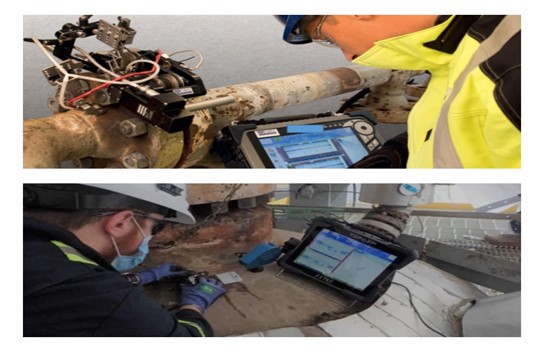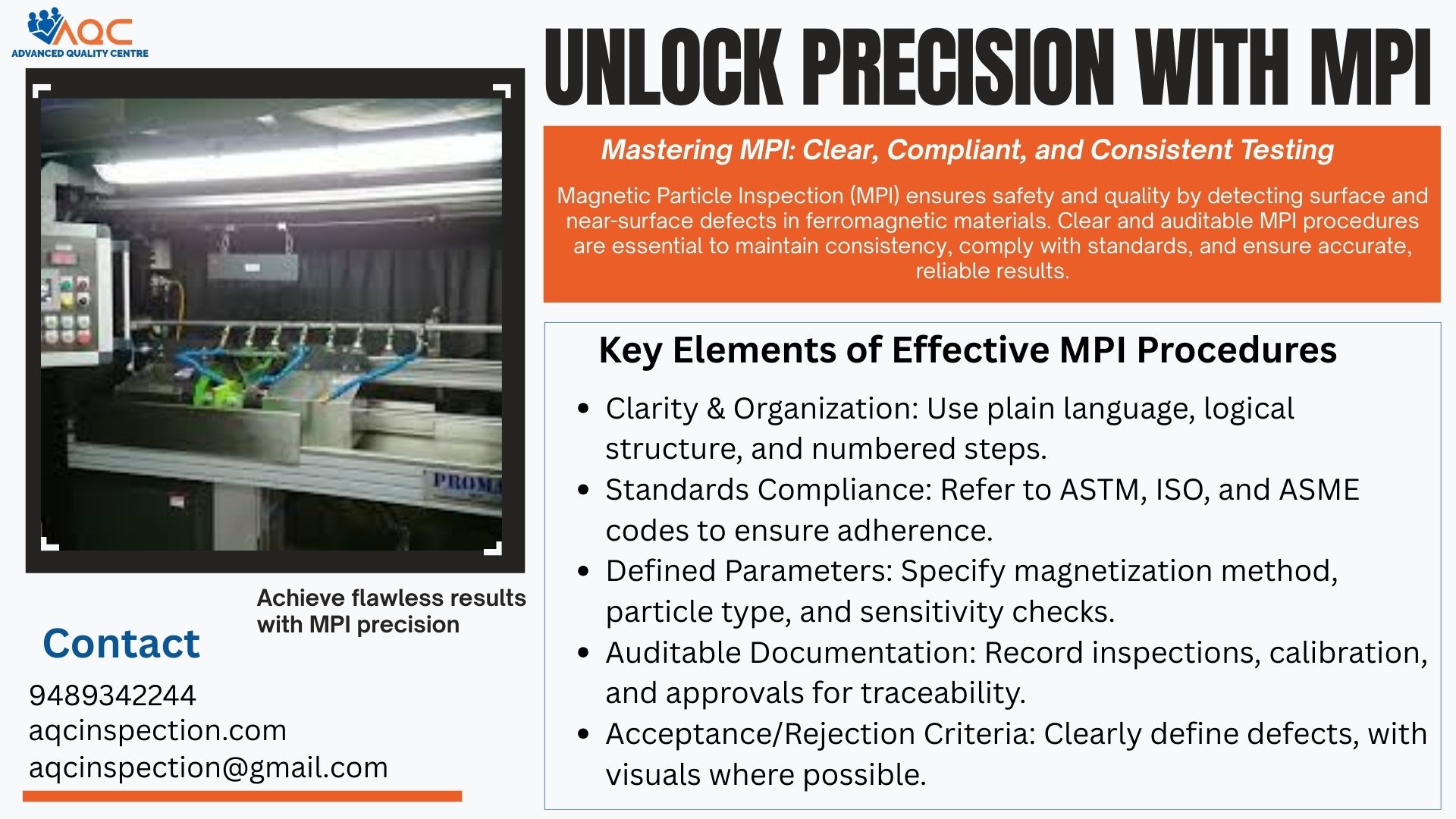The Role of Ultrasonic Thickness Testing (UTT) in Ensuring Tank and Pipeline Integrity
In industries like oil and gas, petrochemical, and water treatment, the reliability of tanks and pipelines is paramount. Over time, these assets are exposed to various forms of wear and tear, including corrosion and erosion, which can compromise their structural integrity.
To address this, Ultrasonic Thickness Testing (UTT) has emerged as a leading non-destructive testing (NDT) method. It provides a crucial means of monitoring the condition of materials, ensuring that any weaknesses are detected early, long before they lead to failures or safety hazards.
At Advanced Quality Centre, Coimbatore, we offer state-of-the-art ultrasonic thickness testing services to help industries maintain their operational safety, comply with industry regulations, and avoid unplanned downtimes.
What is Ultrasonic Thickness Testing (UTT)?
Ultrasonic Thickness Testing involves the use of high-frequency sound waves to measure the thickness of materials like metal, plastics, and composites, which are commonly used in tanks and pipelines. The process involves sending sound waves through the material and measuring the time it takes for them to return. The reflection time helps determine the material’s thickness accurately.
Since UTT is non-invasive, there’s no need to disassemble equipment or structures, making it ideal for inspecting critical assets in situ. This makes the process cost-effective, efficient, and safe for workers.
Why is UTT Essential for Tanks and Pipelines?
- Early Detection of Corrosion
Corrosion is one of the most common threats to the integrity of tanks and pipelines, especially those exposed to harsh environments. By regularly monitoring material thickness with UTT, any areas affected by corrosion can be identified early, preventing catastrophic failures like leaks or ruptures. - Identifying Erosion Damage
High-velocity fluids passing through pipelines can cause erosion, particularly in areas of high turbulence like bends and joints. Ultrasonic testing helps detect thinning caused by erosion, enabling timely repairs and extending the life of the pipeline. - Preventing Costly Downtime
Unscheduled maintenance due to unexpected failures can be extremely costly, both in terms of repairs and lost productivity. By using ultrasonic thickness testing for routine inspections, businesses can plan maintenance schedules, avoid unexpected failures, and minimize downtime. - Compliance with Safety Regulations
For industries handling high-pressure systems or hazardous materials, adherence to safety regulations is crucial. Regular UTT helps ensure that your assets are up to standard, meeting both internal safety protocols and external regulatory requirements.
How Does Ultrasonic Thickness Inspection Work?
- Surface Preparation
Before testing, the surface of the material is cleaned to remove any debris, rust, or scale. This ensures an accurate reading and prevents interference with the sound waves. - Sending the Sound Waves
A transducer generates high-frequency sound waves that are directed toward the material. These waves travel through the material and hit the back wall. - Reflection and Measurement
The sound waves reflect back after hitting the other side of the material. The time it takes for the waves to return is measured, and this data is used to calculate the material’s thickness. - Data Interpretation
The gathered data is analyzed, and a report is created detailing areas of concern. This report can be used to plan maintenance or repairs.
Benefits of UTT for Your Business
- Non-Destructive: No damage to the material or system, ensuring operational continuity.
- Highly Accurate: Offers precise thickness measurements down to micrometers, making it ideal for detecting even the smallest of changes in material integrity.
- Cost-Effective: As a non-invasive and fast technique, UTT helps businesses save on potential repair costs by detecting issues early.
- Portable and Flexible: Modern ultrasonic testing equipment is portable and can be used both on-site and in the lab.
- Time-Saving: Quick measurements mean minimal downtime during testing, allowing businesses to continue their operations with little interruption.
Where is UTT Used?
- Storage Tanks: Regular checks on chemical, oil, and gas storage tanks to ensure their structural integrity and prevent leakage.
- Pipelines: Monitoring the health of pipelines that transport hazardous materials or fluids, ensuring they meet safety standards and preventing environmental hazards.
- Pressure Vessels: For vessels operating under high pressure, UTT is vital for ensuring they don’t develop weaknesses that could lead to accidents.
- Marine Vessels: The hulls of ships and offshore rigs are constantly exposed to corrosive environments. Ultrasonic testing ensures these vessels remain safe and seaworthy.
Conclusion: Why Choose Advanced Quality Centre ?
At Advanced Quality Centre, Coimbatore, we are committed to providing the highest quality ultrasonic testing services, tailored to meet the specific needs of your business. Our team of skilled professionals uses the latest ultrasonic testing technology to deliver fast, accurate, and reliable results that ensure the safety, efficiency, and longevity of your tanks, pipelines, and other critical assets.
With our services, you can expect:
- Expert Technicians: Highly trained professionals who provide precise testing and accurate analysis.
- State-of-the-Art Equipment: We invest in the latest ultrasonic testing tools to ensure the best results.
- Timely and Detailed Reports: Receive clear, actionable reports that help you make informed decisions.
- Comprehensive Support: From scheduling inspections to post-test consultations, we support you every step of the way.
FOR MORE INFORMATION AND TRAINING:
- Contact ADVANCED QUALITY CNTRE (AQC)
- Mail ID : [email protected]
- Contact: 8668082413
Visit our technical and career updates at our Blog site https://advancedqualitycentre.blogspot.com . or
https://ndtcenter.blogspot.com
Subscribe our youtube channel to know more practical explanations https://aqcinspection.com/




